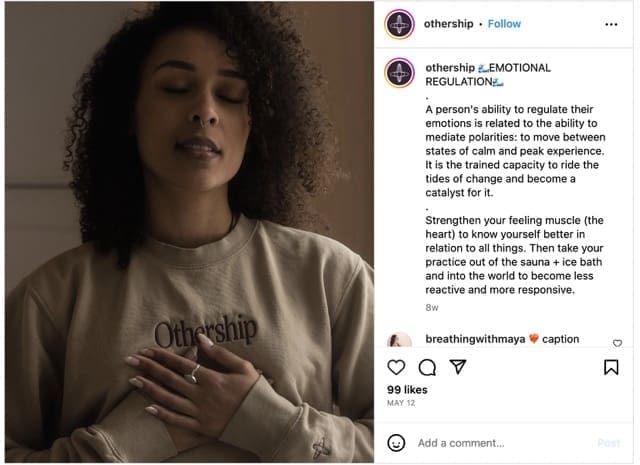The pandemic put a pause on in-person group fitness classes and fitness centers, driving consumers to reflect on their own relationship to wellness. For others, this granted them an occasion to take a step away from their routines entirely. Now, in a post-pandemic world, consumers and brands alike are approaching wellness with a renewed sense of purpose and direction.
The start of a new calendar year is seen as a fresh start by consumers who often use the occasion to set new resolutions for themselves. A mid-year check-in provides an opportunity to see what has worked for brands and what direction wellness will go in the future. The Mintel Trend Total Wellbeing* explores how wellness has become a holistic pursuit, with consumers seeking out solutions that meet their evolving health needs. As the year progresses, this consumer trend provides a roadmap for both brands and consumers to use as a guide in creating lasting and impactful habits that make resolutions less daunting to revisit throughout the year, leaving consumers feeling inspired even as the novelty of a New Year’s resolution fades.
Stretch, Don’t Strain
Despite a lingering hustle culture inspiring consumers to push themselves to their limits, there is a growing understanding of the importance of rest and recovery. In this sense, there is room for self-care within the fitness industry as a contrast to high-intensity workouts that could be intimidating to consumers who are just starting out on their wellness journeys or those who may be losing motivation as the year progresses.
For brands, it is increasingly necessary to strike a balance between messaging that focuses on both effort and rest to provide support for those who are looking to challenge themselves without completely overwhelming themselves. This approach is already expanding to new industries, showing how even brands that are not directly within or adjacent to the wellness space can tap into consumers’ wellness goals and routines.
Westin Hotels & Resorts, for example, added high-tech recovery and total body strength training equipment to its gear-lending program, WestinWorkout. According to Mintel’s Wellness Travel report, 71% consumers who have taken or would be interested in taking a wellness vacation would be interested in adding wellness activities to a non-wellness vacation. The program’s expanded focus on helping travelers recharge taps into this desire to feel relaxed and energized after a vacation and could be an approach that fitness brands could take to highlight how post-workout recovery can evoke similar feelings in one’s everyday life.

The intersection of Mintel’s Psychological* and Fitness* Trend Pillars points to the emotional benefits that consumers want to achieve when engaging in physical activity. As Westin’s initiative points out, there is room for brands to play a role in this pursuit. By offering activities or services that promote recovery, consumers can feel motivated and supported even on days when their primary focus is not necessarily on exerting themselves.
It’s a Mental Game
The stress of the pandemic boosted an increased awareness of the importance of mental and emotional health, as well as the impact of stress on one’s physical health. With this, consumers are looking for ways to nurture their inner self through activities such as meditation, yoga, journaling and personalized self-care rituals. As these practices become more mainstream, consumers will look to achieve more balanced lifestyles, but will want guidance on where to shift their focus.
In Canada, Othership has gained a following as an app and in-person wellness studio that specializes in guided breathwork as well as hot and cold therapies. Othership’s flagship location in Toronto encourages members to take a social approach to self-improvement through group sauna sessions, meditation circles and breathwork classes. For consumers, this approach can feel more effective than targeting stress on their own, giving them greater reassurance that others are also taking charge of their mental health. Pairing these practices with Othership’s thermal therapies can be a way for members to find holistic relief as a way to target inflammation, improve circulation and address other health concerns that may go overlooked by traditional medicine. While saunas or ice baths may be a shock to the system, they give people reassurance that they are improving their health from within, while requiring minimal effort. In this regard, combining both physical and psychological benefits can be a way to achieve a sense of total wellbeing.

With plans to expand its studio experience to the US, Othership aims to bring its social wellness approach to a broader audience, offering consumers a chance to find support and community through practices like meditation and mindfulness which can be isolating when practiced independently.
What we think
The definition of wellness is constantly evolving to meet consumers’ changing priorities. A growing focus on recovery and inner peace is a way for consumers to build resilience in preparation for future stressors and global uncertainty at large. It is necessary for brands to understand the emotional motivations behind emerging wellness practices as they can be an indicator of how consumers may shift their purchasing habits in the future. In the years to come, this growing focus on stability will inspire consumers to align themselves with brands that empower them to feel more secure in their physical abilities and mental strength.
Brands can act on a growing consumer desire for both physical recovery and emotional stability by creating products and services that address both the body and mind rather than treating them as separate entities. Consumers are increasingly approaching their health and wellbeing from a holistic perspective, and brands should follow suit to support consumers as they set and meet their wellness goals.
* indicates a client-only link. Not a client? Please reach out to learn more about our Trends.
































